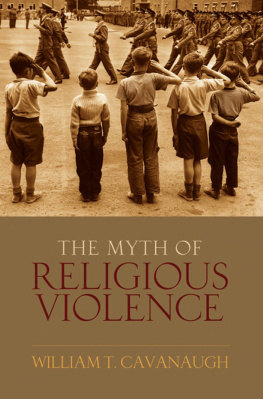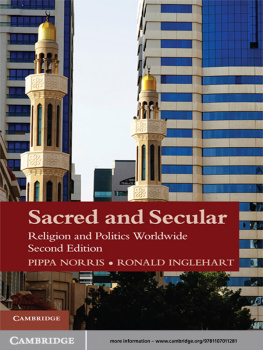Continuum International Publishing Group
The Tower Building, 11 York Road, London SE1 7NX
80 Maiden Lane, Suite 704, New York, NY 10038
www.continuumbooks.com
Sanja Perovic and Contributors 2012
All rights reserved. No part of this publication may be reproduced or transmitted in any form or by any means, electronic or mechanical, including photocopying, recording, or any information storage or retrieval system, without prior permission in writing from the publishers.
Sanja Perovic and Contributors have asserted their right under the Copyright, Designs and Patents Act, 1988, to be identified as Authors of this work.
British Library Cataloguing-in-Publication Data
A catalogue record for this book is available from the British Library.
ISBN: 978-1-4411-8974-5
Library of Congress Cataloging-in-Publication Data
Sacred and secular agency in early modern France: fragments of religion/edited by Sanja Perovic.
p. cm.
Includes bibliographical references (p. ) and index.
1. Secularism France. 2. France Religion. 3. France Church history 18th century. 4. Civilization, Modern. I. Perovic, Sanja.
BL2747.8.S235 2011
211.60944 dc23
2011021834
Notes on Contributors
Craig Carson is Assistant Professor of English at Adelphi University and a former Harper-Schmidt Fellow and Collegiate Assistant Professor at the University of Chicago. His current book project, Eighteenth-Century Society of the Spectacle: Ethics and the Marketplace, examines eighteenth-century British literature, political economy, and commodity culture.
Charly Coleman is Assistant Professor in the Department of History and the Interdisciplinary Project in the Humanities at Washington University in St. Louis. His work has appeared in The Journal of Modern History and Modern Intellectual History. He is currently completing a book on theological, philosophical, and political polemics surrounding the concept of selfhood in eighteenth-century France.
Denis Crouzet is Professor of History at the Universit de Paris IV-Sorbonne and Director of the Centre Roland Mousnier as well as the Institut de recherches sur les civilisations de lOccident Moderne. He has published numerous articles and 12 books on early modern France, including Les Guerriers de Dieu. La violence au temps des troubles de religion (v. 1525v. 1610) (Champ Vallon, 1990); La nuit de la Saint-Barthlemy. Un rve perdu de la Renaissance (Fayard, 1994); La Gense de la Rforme franaise 15201562 (SEDES, 1996); Le haut cur de Catherine de Mdicis. Une raison politique aux temps de la Saint-Barthlemy (Albin Michel, 2005); Dieu en ses royaumes: Une histoire des guerres de religion (Champ Vallon, 2008); and Nostradamus (Payot, 2011).
Stephanie Frank is completing a PhD in the Divinity School of the University of Chicago. She works on the intellectualhistorical valence of secularization. Her current project pertains to disciplinarity and the social sciences in twentieth-century France.
Sophie Fuggle is Lecturer in Cultural Studies at Goldsmiths, University of London. Her research interests are focused on the relationship between continental philosophy and theology.
Francesco Manzini is a Junior Research Fellow in French at Oriel College, Oxford. He is the author of Stendhals Parallel Lives (Peter Lang, 2004), as well as of various articles on Joseph de Maistre, Stendhal, Balzac, Borel, and Barbey dAurevilly. His second monograph, The Fevered Novel from Balzac to Bernanos (IGRS), is currently in press.
Ellen McClure is Associate Professor of French and Francophone Studies at the University of Illinois, Chicago. She is the author of Sunspots and the Sun King: Sovereignty and Mediation in Seventeenth-Century France (University of Illinois Press, 2006), as well as various articles on authors such as Corneille, Racine, Molire, and Mme de LaFayette.
Sanja Perovic is Lecturer of French at Kings College London. She is the author of The Calendar in Revolutionary France: Perceptions of Time in Literature, Culture, Politics (forthcoming from Cambridge University Press), as well as articles on French theatre, revolutionary culture, encyclopedias, and other aspects of the French Enlightenment.
Erik Thomson teaches history at the University of Manitoba. His work has appeared in many journals, including French History, the Scandinavian Journal of History, and the Journal of the History of Ideas.
Dale Van Kley is Professor of History at Ohio State University. He is the author of numerous articles and several books on French Catholicism, including The Jansenists and the Expulsion of the Jesuits from France (Yale, 1975); The Damiens Affair and the Unraveling of the Ancien Rgime (Princeton, 1984); The Religious Origins of the French Revolution (Yale, 1996); and The French Idea of Freedom (Stanford, 1994). His more recent comparative work on European Catholicism has appeared in several articles and the edited book Religion and Politics in Enlightenment Europe (Notre Dame, 2001). His latest publication is the co-edited book (with Thomas E. Kaiser) From Deficit to Deluge: The Origins of the French Revolution (Stanford University Press, 2011).
Introduction
Sanja Perovic
Secularization is arguably the last master narrative that remains an article of faith in Western society. It is so fundamental to the notion of modernity that the opposition between religious and modern has assumed the status of a self-evident truth. Recently, however, there has been a growing realization that religion may indeed be more resilient and compatible with modern forms of social life than was previously assumed. A number of recent books have begun to reconsider the secularization thesis and its related metanarratives.
If distinctions between secular and sacred are far less stark than is commonly assumed, then how did these two categories interact? Did religion slowly wither away, or is it possible to identify theological dynamics that remained at work even after the supposed conclusion of secularization? This book seeks to answer these questions by exploring the persistence of religious categories in the cultural landscape of early modern France. France was the birthplace of Europes first secular state and the center of two movements considered indispensible to secularization the Enlightenment and the Revolution of 1789. In contradistinction to the political evolution of Britain and America, in which religion was never explicitly opposed to a secular political order, the absolutist French state originated in part as a way to end the Wars of Religion and was eventually succeeded by the establishment of the French Republic. This raises the question both of what became of the religious antecedents that had previously informed politics and culture, and whether they continued to inform modern political institutions and ideals. The study of France is thus vital for understanding not just the role played by religion in forging a resolutely self-proclaimed secular state, but also the way in which this oppositional structure of religion versus modernity might be deployed in other parts of the world that are often imagined to be in thrall to theology and therefore in need of democracy.


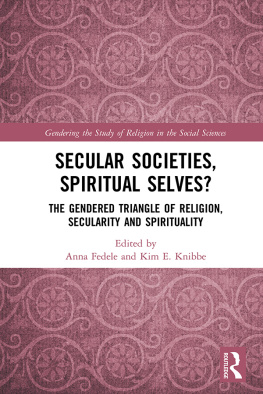
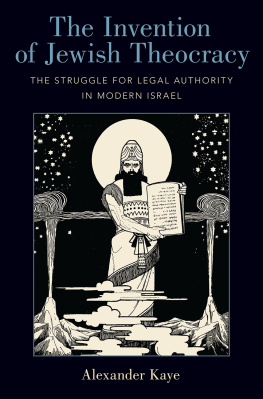
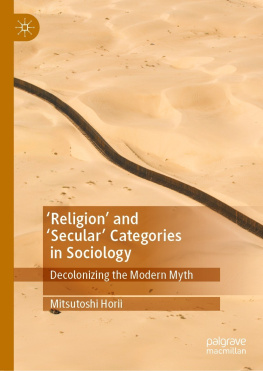
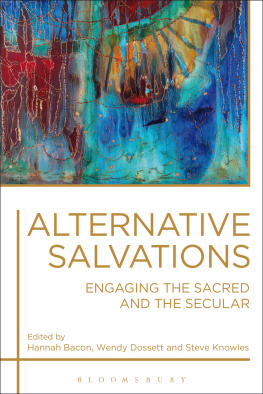
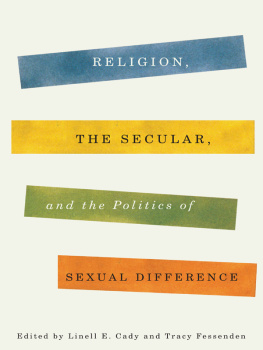
![Blackford - Freedom of religion [and] the secular state](/uploads/posts/book/167779/thumbs/blackford-freedom-of-religion-and-the-secular.jpg)
